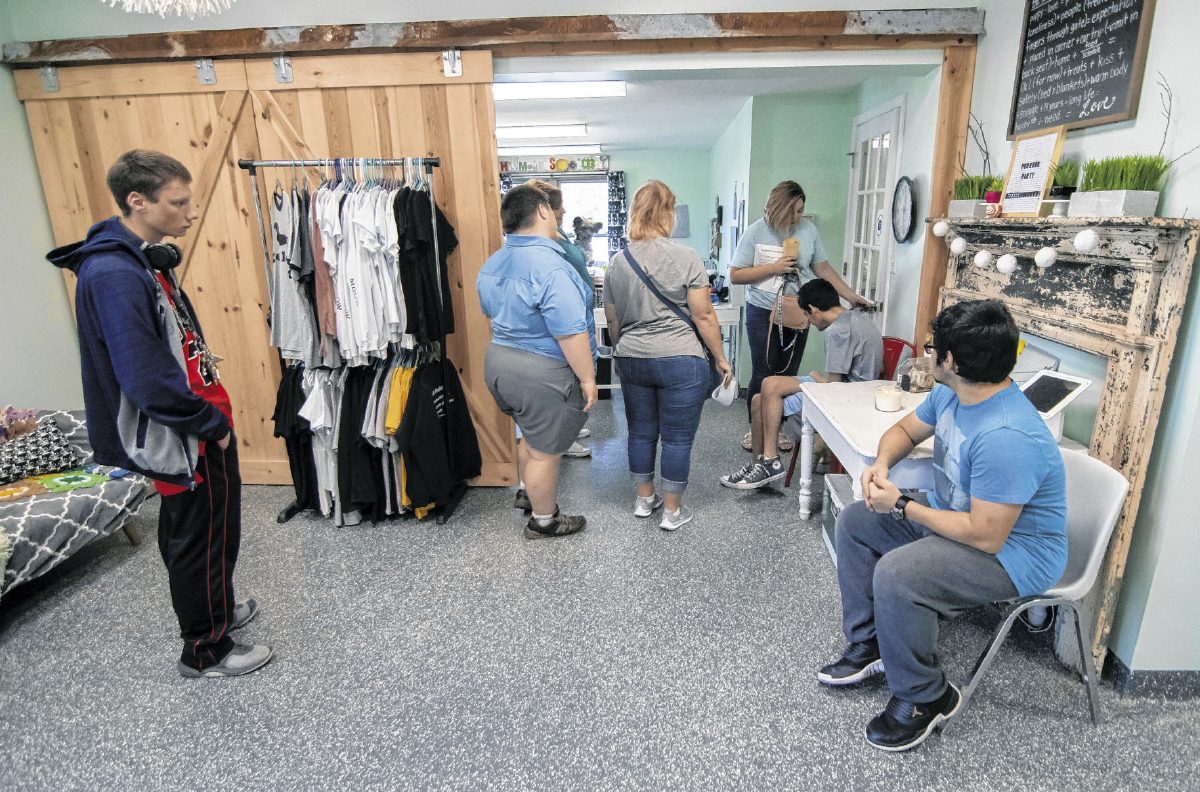Each Monday at the PowerHouse Baseball Training facility in Franklin, a group of students from Franklin Community High School gathers to pick up baseballs and softballs and make sure all other athletic equipment is in place for the next group of athletes.
The students, ranging in age from 18 to 21, are part of the Transition to Adult and Careers Program, which helps students who have developmental delays and could not earn a high school diploma prepare for life in the adult world. Students in the program have individualized education plans, which determine the help special education students will need to succeed in life.
Schools have been required to provide services to students with disabilities up to the age of 21 under the Individuals with Disabilities Education Act, which became federal law in 1975.
[sc:text-divider text-divider-title=”Story continues below gallery” ]Click here to purchase photos from this gallery
While Franklin schools has followed this law, it took it a step farther four years ago, moving students out of the high school building and shifting focus to helping students with job readiness and functioning as productive members of society. The local program assists students until they turn 22, a year later than the law requires. The program now has 11 students, up from seven last school year, said Chelsea Parker-Tucker, a teacher for the Transition to Adult and Careers Program at Franklin schools.
“We do very basic community skills. We practice going to the grocery store every week. We go to the library, parks and recreation, job sites for students,” Parker-Tucker said. “At this point, we’re giving them opportunities to see what they’re interested in, setting up sites to get experience and learn new skills. Our hope is by starting out here while they’re still in school, once they’re done with school, it will open up the door to a paid experience.”
At PowerHouse, students are quickly demonstrating that they have what it takes to eventually work at the sports training facility, Owner Chad Fuller said.
“The biggest thing they’re learning is the responsibility of being able to show up all the time, being able to do the tasks they know they have to get completed,” Fuller said. “The teamwork behind it is pretty neat to watch, some of the kids in class together have been together for years. They open nets for each other, help each other with the heavier stuff. When they first started coming in I was making sure I was here all the time, just to make sure everything was going well. Now, the teacher’s aide has the code and I never have to worry about them here.”
Along with PowerHouse, students in the transitional program have learned job skills at Bradley Chevrolet, Chili’s, Edward Jones and at the Franklin school administration building. Students also do volunteer work, helping out at the Homeview Health and Rehabilitation Center in Franklin, the Humane Society of Johnson County and The Hope Gallery in Bargersville, Parker-Tucker said.
Because the transitional program is in its fourth year and Franklin Schools keep students in the program until they turn 22, there hasn’t been much of a sample size of students aging out of the program and getting jobs, but Mindy Staton, essential skills and transition coordinator for Franklin Schools, wants to make sure students can get vocational training so they can find jobs once they leave, Staton said.
The biggest reward to working with students in the transitional program is seeing the progress they make in adapting to the adult world, Staton said.
“Now they go out into the community all the time,” Staton said. “They’re doing more adult things like working on community skills, shopping, being independent in the community and going around downtown Franklin like an adult.”





